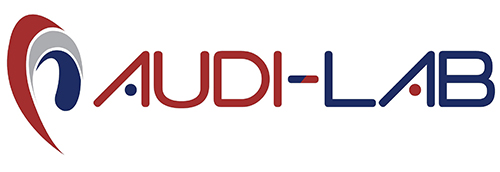LACE Hearing Rehabilitation, , Dublin
Hearing Aids Rehabilitation is Crucial To Your Hearing Aid Success
LACE, Interactive Rehabilitation
Training your brain with speech, cognitive and memory exercises
Listening and Communication Enhancement (LACE) is an interactive computerised training program that's self-paced, individualised and can be completed at home. It improves listening and communication skills by involving you in the hearing-aid fitting process, building your confidence and providing effective listening strategies.
While hearing aids can help you to detect sounds, they don't affect other important factors in the brain's ability to understand — listening, communication and comprehension. Enhanced listening skills lead to better comprehension and communication and vice versa and auditory rehabilitation is designed to work on these cognitive processes.
Hearing aids are a therapeutic device that you need time, and training to adjust to
I am sure you can imagine that when someone receive a therapeutic device, like an artificial limb, they undergo physical therapy to learn to adjust to using it. The same is needed for hearing aids, hearing aids are a therapeutic device that you need time and training to adjust to. Hearing aids will supply the sound, but it is your brain that will decipher that sound into usable information. Don't forget that you may have been starved of that information for many years.
It will take some time for the brain to adjust to the re-introduction of that information and re-learn what to do with it. If you don't learn to use your cognitive function to listen and "fill in the gaps," the benefits of hearing aids are minimised somewhat. LACE rehabilitation can really help, it can develop your skills to offset those limitations that you suffer.
How does LACE work?
For four weeks, a user spends a half-hour, five days each week working with a computer program at home to help enhance listening skills. The user gets immediate feedback regarding correct comprehension and can monitor improvement. LACE provides interactive and adaptive tasks that are divided into three main categories:
- Cognitive skills
- Communication strategies
- Degraded speech.
Speech Exercises
For degraded speech exercises, speech is either time compressed to simulate rapid speech or presented with background babble noise or a single competing speaker. The difficulty level of the task is based on the accuracy of the your response to the previous task. You listen to and identify the speech signal, you will then see the correct response on the screen.
If you have understood it correctly, the next sentence will be a little more difficult, or if you were incorrect, the next sentence will be easier. For rapid speech, the ratio of time compression changes in a similar adaptive manner, minimising boredom and frustration.
Auditory Memory & Processing Exercises
LACE also gives stimulating training exercises to enhance auditory memory and speed of processing, two elements of listening that are particularly important in noisy environments. Also, LACE presents interactive communication strategies.
In addition to the immediate feedback for each task, LACE provides you with a graph depicting daily progress and improvement from the start of the training. Furthermore, the results of the training are tracked and electronically transmitted to us so that the progress and any needed modifications in training can be implemented.
LACE objectives
- Get you involved with your treatment
- Help you recognise difference between hearing and actively listening
- Build your confidence
- Provide communication strategies that will help
LACE was created by Robert Sweetow, professor of otolaryngology and former director of audiology at UCSF Medical Center. Sweetow developed it with researchers Jennifer Henderson Sabes and Monica Miller of UCSF, and Gerry Kearby, Earl Levine and Rob Modeste at NeuroTone, Inc.
